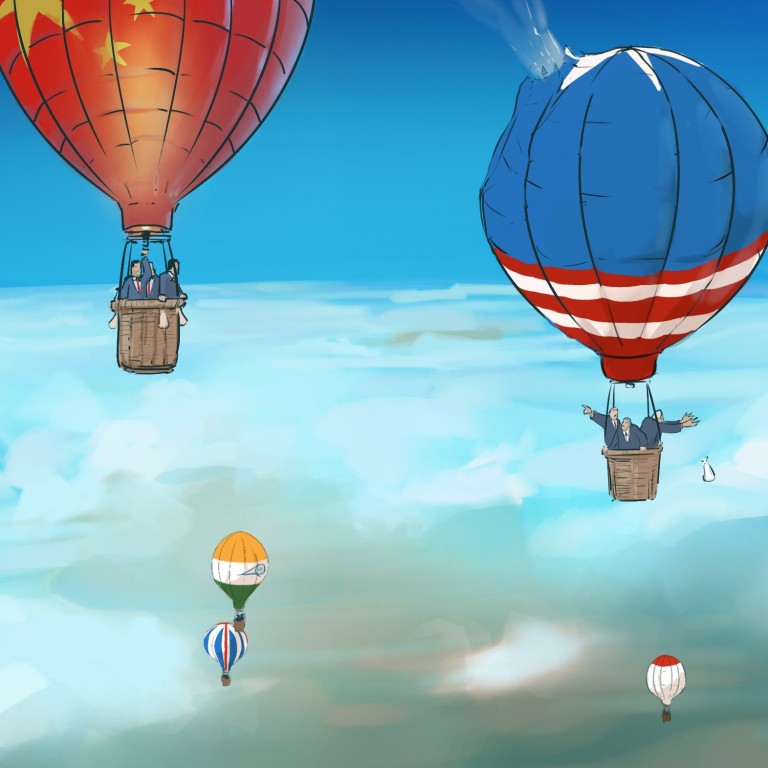
China has risen peacefully, but will America go down without a fight?
- Zhou Bo says the world should worry not about a rising China, but an insecure, declining US. The fact America sees China as a rival is not strategic orientation, but a sign of how lost it feels. And this could spell trouble for regional peace
What is the greatest challenge we face in the 21st century? It is not China’s rise but America’s decline.
The decline, albeit relative, is obvious. The United States’ share of global GDP has dropped from an estimated 50 per cent at the end of the second war to 22.4 per cent in 1985 and to 15.2 per cent today. The International Monetary Fund expects it to slide to 13.9 per cent by 2023.
America’s decline started before Donald Trump became president, dating from the apogee of triumphalism at the end of the cold war, and will probably continue after him. But he is accelerating it with his “America first” agenda.
History will judge Trump, but probably not in two or six years. Accountability and credibility don’t seem to matter to the unpredictable US president, who prefers to play with fire.
Even those most critical of China have to admit its rise in the past 40 years has been peaceful, but could America’s decline, if inevitable, be equally peaceful?
First, use common sense rather than believe in myths. One doesn’t need to read Paul Kennedy’s classic, The Rise and Fall of the Great Powers, to know great powers are rising and falling all the time.
The US should stop worrying about ‘imperial’ China
An American is not necessarily more proud of his country than a Maldivian who is greeted every day by tourists coming from all corners of the world. If all men are created equal, so are all countries.
The US still has good reason for self-confidence. It has rich natural resources, an attractive culture, a strong educational system, creative entrepreneurs and favourable demographics.
US military power is unchallenged anywhere and will remain so for a long time. The world still looks to the US for engagement, although not necessarily leadership, on many global issues.
Before the trade war: how America wooed 18th-century China
The usefulness of the UN can be best ascertained by asking: what would the world become without the UN taking care of issues ranging from conflict and poverty to social and economic development and human rights?
Although the UN is sometimes criticised for bureaucracy and low efficiency, it best represents collective decisions and actions on global issues.
The UN remains on American soil. As one of the creators of the UN and the largest financial contributor, the US should join others in reforming it, instead of weakening the largest intergovernmental organisation on the planet.
The relationship between the US and China, the world’s two largest economies, is understandably complicated, especially given that China is widely expected to overtake the US economically by around 2030.
Everyone laughed at Trump in the UN. That’s a terrible mistake
For China, the challenge is how to continue rising peacefully when the US sees it as a top strategic competitor.
But today, it is much stronger and more comfortable with the current international system. Beijing’s offer to share its stories of economic success with those who are interested should not be taken as an attempt to promote its ideology abroad.
Just how badly is China’s economy doing?
How might Trump tweet about this? “Very bad!”
Zhou Bo is an honorary fellow with PLA Academy of Military Science in China

